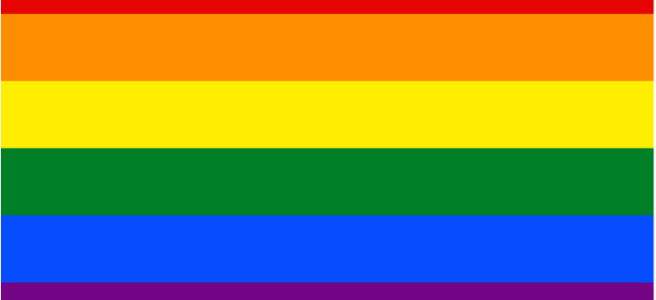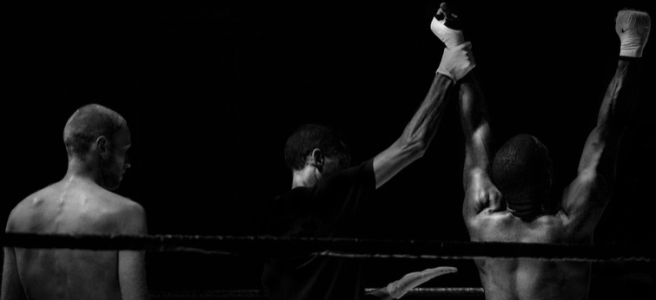by DeDe Parker, blogger, photographer, and a Buddhist Monastic Student
On June 12, 2016, a young man entered a gay bar in Florida and killed 49 people. One week after the shooting, I sat down with Glenn Gustafson, a Buddhist monk, for his response to the shootings, a discussion about the causes of this behaviour, and what we can possibly do in the face of such anger and hatred.
Gustafson, who was a Catholic Seminary student from 1984-1986, began practicing Buddhism in 2010 and was ordained as a monk in 2014. He is the monk in residence at Central Ohio Center for Pragmatic Buddhism in Columbus, Ohio (link below), a gay man, and my teacher for the past seven months.
DeDe: What was your first reaction? Was it as a gay man? As a human, hurting for other humans? Or was it something else?
Glenn: It was as a gay man. I think that’s a natural human way of responding, when it’s a community you identify with. Had it been an attack on a Buddhist temple, I’d have responded as a Buddhist monk. Since it was at a gay bar, my first thought was as a gay man.
DeDe: When things like that happen, and this event specifically, do you find that you still have anger to work through? Or do you find that you’ve progressed to a point in your growth and your studies where you don’t have an anger response?
Anger is useless in situations like this
Glenn: I really didn’t have anger at all at this. A lot of the LGBTQ community is incredibly angry. My response was sadness, both for the victims and the shooter. Sadness that they were victims of a philosophy that, in trying to impose its morality on everyone, led to something like this. Anger is useless in situations like this.
DeDe: I saw a meme once that said “hurt people hurt people” That really spoke to me because I have difficulty being compassionate sometimes; my first response is usually anger. Do you agree with that sentiment? Hurt people hurt people?
Glenn: Yes, definitely, and I think that’s the central Buddhist response to actions like this. It arises from the suffering of the person who caused it, who perpetrated it.
DeDe: Last week in our online forum, I asked my fellow students: When someone commits a crime, as Buddhists we think “what must have been happening in their life, in their heart, that would cause them to take that action?” And it’s all well and good for us to think that way, but how does that translate to some sort of punishment within our judicial system? How do we be compassionate to the perpetrator of a crime and still prevent further action from that person?
“You took something from me, I’m going to take something from you”
Glenn: That to me gets into our entire philosophy of retribution in this country. We don’t imprison people to reform them. I always smile when I hear the name “Mansfield Reformatory” We don’t reform people. We have no concept of reform. Our policy of punishment, our “justice system” is built around retribution. “You took something from me, I’m going to take something from you”.
DeDe: So it’s not justice, it’s revenge.
Glenn: Exactly. There’s a reason that we not only have the highest rate of imprisonment in the industrialized world. We also have the highest rate of recidivism. And it’s because we have NO concept of reformation. There are people in the system who try, but the system itself is going to prevent them. It’s built around retribution.
I was just reading about the new warden at Attica. He’s trying to do away with solitary confinement altogether, because he realizes this is not helping at all. All it’s doing is reinforcing hatred and suffering. And people are saying he’s insane. I say he’s insane if he thinks he’s going to make a change in the US justice system (laughing). But, at least he’s trying. There are people in the justice system who try.
Think of the judges who get called out for imposing unusual sentences. But they are unusual because they are aimed at helping the person reform. Sometimes through shame, but honestly, that’s a big motivator for change. It’s not punishment, it is shaming for reformation. And hey, maybe some of those will work. It sure can’t work any worse than our system of retribution.
DeDe: In a perfect world, what would we do with violent offenders?
Glenn: That is speaking beyond my competency. I can’t speak to that.
DeDe: When we spoke before, you said that you think this is really going to be a watershed moment for the queer community. What do you think that’s going to mean for people outside the community? What sort of change do you foresee happening, in a larger sense?
Glenn: I think for the vast majority of the country that is in the moderate (political) spectrum, it will mean a change in their clinging to their philosophy of “I have the only right view”. I hope it will. I think it will make people look at their own beliefs and say “Wow this is not only good for me, but look how it’s harming other people.” And maybe change those beliefs. At least the part that’s hurting other people.
Hurt people hurt people
DeDe: Why do you think that that this incident specifically will do that when the 300 and some other shootings of children that happened in the past year or so- people going to schools and gunning down little kids- why will this event cause that positive change when those events wouldn’t?
Glenn: Well, this isn’t going to change anything with gun control.
DeDe: I don’t mean that; you were talking about the examination of beliefs-
Glenn: All those other killings were killings of majority citizens, who had no hate directed toward them by society. This was a killing of a sexuality minority who has had constant hate directed at them by society. And I think there will be at least some..will it make a change in the majority of people? No. But I think it will make a change in a good number of people who, every time they hear that type of hatred, will see the faces of those 49 people.
DeDe: What would you say in your role as not only a member of the gay community, but also a representative of the Buddhist community, if you could speak to those people who are super-angry? I don’t mean people who were angry initially, but now are motivated to make positive change, but the people who feel impotently angry. Those who are now just directing that anger and hurt outward. What would you say to them?
Transform your anger into action
Glenn: I would say transform your anger into action; into reaching out to those people who hate you, and showing your humanity. Reach out and get to know the people who speak against you, and show them that you’re human. It’s not going to change all of them, but it will change a few, and hopefully they’ll change a few. And that’s how real change happens.
None of us individually can change the world, but we can change the people around us. And if we isolate ourselves from the people who disagree with us, there’s never going to be any change. Choose your actions wisely. There are those who you are never going to be able to change, and you know that.
The pastors who say (speaking of gay and lesbian people) “line ‘em all up against a wall and shoot them”- Don’t argue with them. It’s not going to do any good. But some of the people who listen to those people – those are the people you can help change.
……………
Since I’ve been studying under Mr. Gustafson, we’ve talked quite a bit in our Sunday morning discussions about how our Order exists within the world, rather than separate from it, cloistered in a monastery. And he makes a great supporting point, when he speaks about getting to know those who hate you. Building walls to peek out from behind only breeds more ignorance, which leads to anger, and we all know what Yoda says about that.
I tend to shake my head in grief and disbelief and say “I just don’t understand what would make someone do that.” And in the case of the shooter, Omar Mateen, his actions may have been motivated in part by self-hatred, as there is some evidence which points to him being gay himself. But shaking your head in disbelief and then moving on doesn’t serve any purpose.
… understand more, so that we may fear less
If our purpose is to prevent events like this, then we mustn’t barricade ourselves behind our self-righteousness and point fingers. Reaching out in compassion, as difficult as that is, is the best first step.
I’m reminded of a great quote by Marie Curie: “Nothing in life is to be feared, it is only to be understood. Now is the time to understand more, so that we may fear less.”
When we reach out with compassion and seek to understand, that gentleness is sometimes returned. Not always, but sometimes.
The Central Ohio Center for Pragmatic Buddhism may be found at 1200 W. 5th Ave, Ste 104 Columbus Ohio 43212






